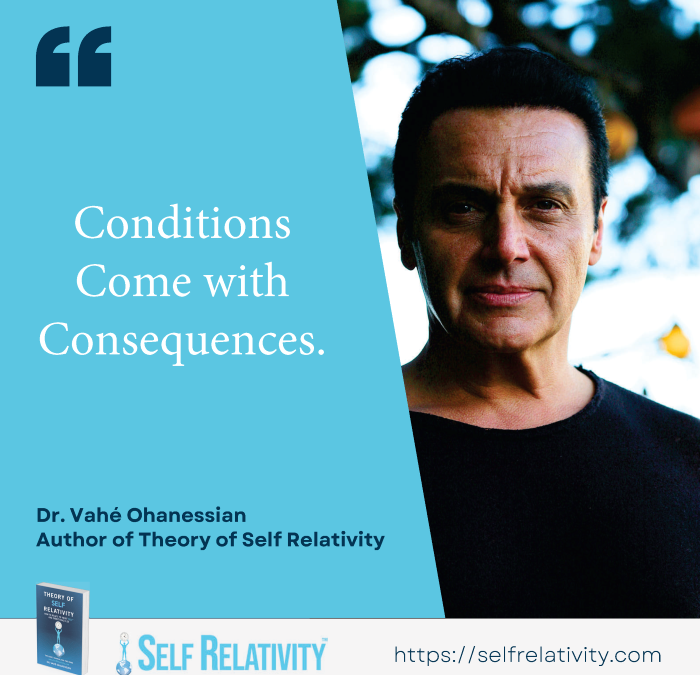
Purpose & Meaning
May 13, 2024
The Leadership Project Podcast
May 20, 2024“Conditions come with consequences.”
Although not categorized as one of Theory of Self-Relativity’s 10-Enemies of Self-Improvement; conditionality, which is closely associated with validation and acceptance, is a constraint that inhibits self-improvement. Because of the broad, undefined and often invisible nature of how conditionality affects all aspects of our life; Theory of Self-Relativity sometimes refers to conditionality as the “11th Enemy” of self-improvement.
Theory of Self-Relativity defines “conditionality” as “the placement of conditions or the enforcement of consequences for acceptance or for compliance.”
Theory of Self-Relativity considers conditionality as a negative attribute. Conditionality is not the same thing as setting conditions, or setting goals and achieving them. Creating a purpose and setting goals are internally set constructive conditions for self-improvement; however, conditionality is considered as a negative-constraint. Conditionality often has no predefined targets of achievement, and it is generally unrealistic, restrictive, and difficult to achieve; because it is not a real goal, it is a condition with potential consequences. Conditionality achieves results via consequences; hence, consequential results could only be maintained via reward or punishment, and not through free-will and personal-relativity.
“When relationships are conditional, therefore they are consequential.”

